BLACK” WOMEN IN POWER BRAZIL-MOZAMBIQUE: DIFFERENT STRUGGLES. SAME CAUSE.
“A gender-equal society would be one where the word ‘gender’ does not exist: where everyone can be themselves.” – Gloria Steinem.
On November 30, CCFM held a Cine Club and Debate event, about the exciting story of black Brazilian women fighting for their rights to participate in the leadership of their country. The film is an amazing work of art, directed by the Brazilians Èthel Oliveira and Júlia Mariano.
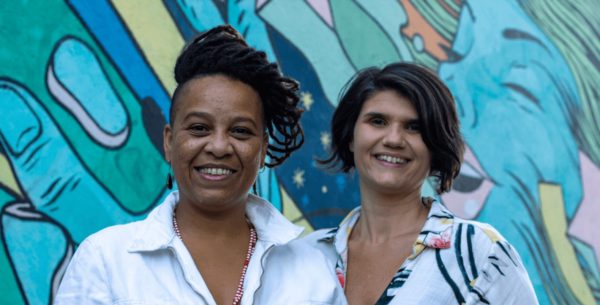
Èthel Oliveira (Left) and Júlia Mariano (Right).
I never thought that a collection of actual events portrayed on a screen could make me feel so emotional, proud, and deeply inspired. At first, I thought that the cinematographic skills of the filmmakers and the compelling technical elements of the film were responsible for “hijacking” me and getting me seriously involved in each and every scene. But when I transcended into the film and saw myself in the midst of those lively marches carried out mostly by black Brazilian women, I realized that what was moving me was the underlying fact that I identified myself with them.
The film shows us how a group of brave black Brazilian women, with different socio-academic backgrounds, most of them coming from the “Favelas”, fight against the Brazilian Political System, which discriminates against black Brazilian women depriving them of their civil and even human rights.
In Mozambique, although in a slightly different scenario, a group of women led by Josina Machel, founded the “Destacamento Femenino” (Rise of Mozambican Women) – a unit dedicated to military training and political education. In 1969, at the age of 24, Josina Machel became head of the Department of Social Affairs and was also head of the Women’s Section in the Department of Foreign Affairs of FRELIMO. Thanks to her, the Children’s Center was created in Cabo Delgado, where some women in the Destacamento Femenino took care of children who were orphaned or with their parents absent in FRELIMO’s fight for national liberation.
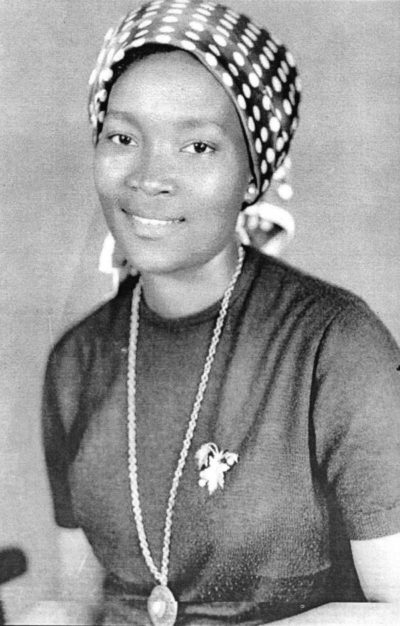
Josina Machel
This is the new kind of Political Concept that I learned, similar to the Politics carried out by Marielle Franco, a black Brazilian Politician who was murdered in 2018, supposedly because of the color of her skin and her politics. Marielle Franco, who was a lesbian, strongly defended that the Black Brazilian women have the capacity and the right to be included in the decision making of the future of the nation, regardless of where they come from in the country, their religion, sexual orientation, and political opinion.
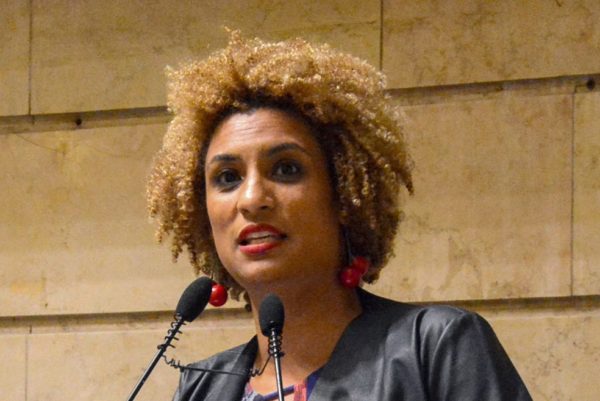
Marielle Franco (1979-2018)
Her death gave birth to a movement of black Brazilian women from all over the country, who under the impact of her murder, disputed the ballot box in the 2018 elections to occupy the National Congress and Legislative Assemblies, with new propositions of political making. The film follows six candidates – Mônica Francisco, Rose Cipriano, Renata Souza, Jaqueline de Jesus, Tainá de Paula, and Talíria Petrone, throughout the campaign, capturing moments of intensity and strength of a front, facing the extreme “Right” machine that took over the Brazilian political and social scene.
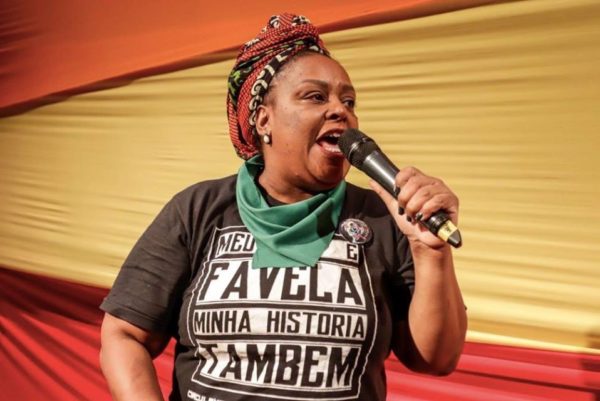
Mónica Francisco (Brazilian Politician)
This is why I felt so connected with the film and with these women in particular because they reminded me of just how much the Mozambican women continue to follow the ideals and struggle of Josina Machel. More and more women have been exercising their right to equality making a positive impact on the development of the country. In Mozambique, women are on all fronts: In the Health system, Military, Economics, Education, Sports, Art & Culture, and Politics.
Data from the “Centro de Estudos Interdisciplinares de Comunicação” (CEC) -Center for Interdisciplinary Communication Studies, show that, in the VIII legislature, there were 90 women in the Assembly of the Republic, two from the Democratic Movement of Mozambique (MDM), 25 from Renamo and 63 from Frelimo. In this legislature (IX), there are 106 women elected, which means an increase of 16 women in the Republic Assembly. The current Mozambican government has 17 ministers, 10 of whom are men and 7 women.
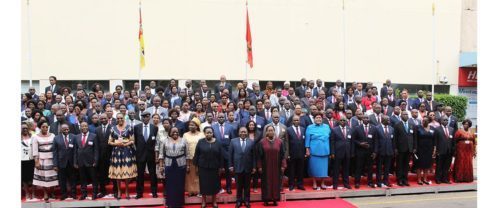
Mozambican Government – A true expression of women in power
Finally, between discreet observation and a poetic look at bodies and actions, “Sementes: Mulheres Pretas no Poder” is a snapshot of hope and struggle in the face of a catastrophic scenario designed in recent years. A film not to be missed, which I watched at the Centro Cultural Franco Moçambicano, thanks to the coordination between CCFM and Paola Prandini, who is the Co-founder of Afroeducação. The film is also available on the site – https://embaubafilmes.com.br.
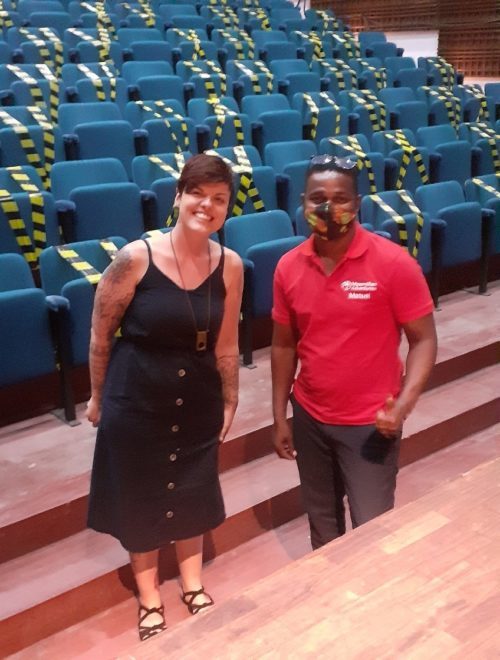
Paola Prandini and myself at the CCFM auditorium
For more information, please contact:
http://www.ccfmoz.com/
21 314 590
info@ccfmoz.com
https://web.facebook.com/CentroCulturalFrancoMocambicano

